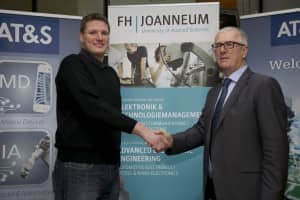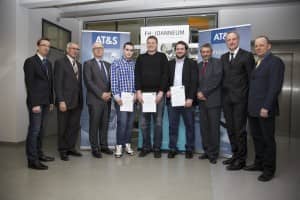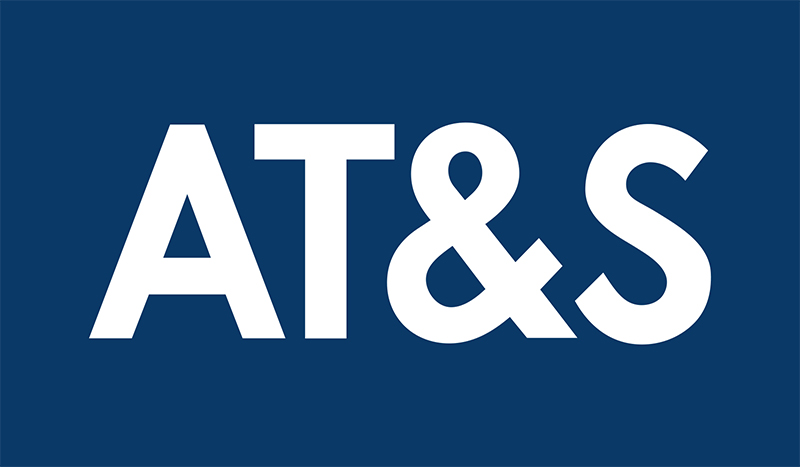Three AT&S excellence grants for electronics undergraduates at FH Joanneum Kapfenberg

 In May 2012 AT&S and FH Joanneum concluded a cooperation agreement designed to foster the development of the next generation of electronics graduates. On 18 March 2013 AT&S Chief Technical Officer Heinz Moitzi presented a grant of EUR 1,000 each to the three most promising students from the university’s 2011 intake.
In May 2012 AT&S and FH Joanneum concluded a cooperation agreement designed to foster the development of the next generation of electronics graduates. On 18 March 2013 AT&S Chief Technical Officer Heinz Moitzi presented a grant of EUR 1,000 each to the three most promising students from the university’s 2011 intake.
By presenting grants to the most promising students on the FH Joanneum Kapfenberg University of Applied Sciences’ Electronics & Technology Management degree programme, Leoben-based printed circuit board manufacturer AT&S is supporting the development of Austria’s next generation of technical specialists while taking steps to counter the acute shortage of suitably qualified graduates. On Monday, 18 March 2013 electronics students Thomas Costreie, Arnold Neckermann and Jakob Topf became the first undergraduates to receive the special grant. In addition to providing financial support, the grant also gives the recipients the chance to complete their mandatory work placement at AT&S. The certificates were handed over in a formal ceremony attended by AT&S Chief Technical Officer Heinz Moitzi, FH Joanneum Dean Karl Peter Pfeiffe, the university’s Commercial Director Günter Riegler, head of the electronics degree programme Hubert Berger and electronics lecturer Michael Salloker. “The AT&S grants are an important step towards promoting the development of the much-needed next generation of electronics specialists. I am delighted that in addition to financial support, we are also in a position to offer these talented undergraduates internships at AT&S, one of the world’s leading manufacturers of high-end printed circuit boards,” explained Heinz Moitzi.
Excellent career opportunities, fascinating specialism
The three undergraduates were delighted with the award, and at the ceremony they gave an insight into their reasons for choosing to study electronics. From an early age Thomas Costreie always wanted to find out exactly how electronic devices work. The man from Bruck an der Mur, Styria revealed what fuels his passion for electronics: “Devices are getting smaller and smaller, but we are getting more out of them all the time.” When asked about the importance of the grant, he continued: “I think it’s great to have been given the chance to forge contacts with a company at such an early stage of my degree.”
Another of the recipients of the grant, Jakob Topf from Graz, added: “I think it is brilliant that students’ hard work is rewarded in this way.” He also voiced his satisfaction with the degree programme: “What I like best are the small groups and ready access to the lecturers. If you are stuck on something then help is never far away. The balance is good too – practical exercises account for roughly half of the contact hours.”
The final grant winner, Arnold Neckermann, touched on another of the arguments in favour of the Electronics & Technology Management programme: “Career prospects are very good in the electronics industry. And its an interesting specialism that is constantly – and rapidly – changing. Working in this sector is never going to be boring.”
Share news:
Further News
